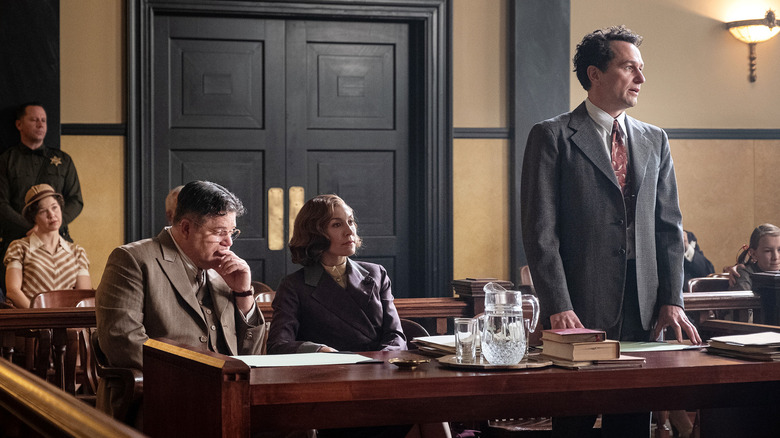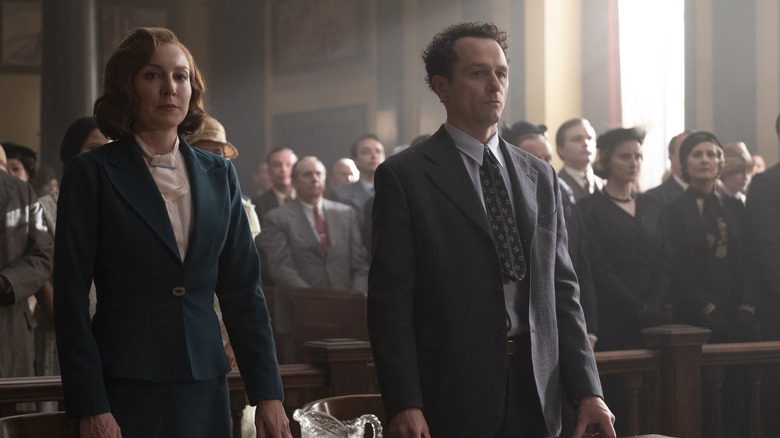Perry Mason Was So Popular It Became An Actual Legal Term
Perry Mason has captivated audiences with thrilling courtroom drama for nearly a century. Erle Stanley Gardner's fictional lawyer debuted in the 1933 novel "The Case of the Velvet Claws," with over 80 more stories detailing the attorney's crime-solving adventures. The character's habit of dramatically revealing last-second decision-changing evidence became so popular that the United States judicial system made it an actual legal term, naming it the "Perry Mason" moment.
The Perry Mason moment is the official term for whenever a lawyer unexpectedly introduces new information that dramatically changes the perception of the court case, influencing the outcome. Generally, the moment comes from a lawyer finding a crack in a witness's alibi after an inconsistent answer to a question, resulting in the witness admitting to the crime.
Real-life court cases could use more Perry Mason moments, as they tend to be snoozefests compared to the dramatized versions we see on screen. While it isn't every day that a fictional character has such an impact on the industry they're portraying, the Perry Mason moment is a bit too good to be true, as they don't happen as often as one would hope.
Perry Mason moments aren't common in today's courtrooms
Although the Perry Mason moment sounds incredible, bringing an exciting sense of drama to court cases, it isn't as popular as the man himself. In "References to Television Shows in Judicial Opinions and Written Advocacy (Part I)," the Journal of the Missouri Bar cited that the term stems from "Mason's dramatic cross-examination that led a key witness or a spectator to break down on the stand or elsewhere in the courtroom, often with a tearful confession." While such instances do sometimes occur in criminal or civil proceedings, they are "very rare."
Unfortunately, in modern-day court settings, attorneys come well-prepared, with both sides generally knowing what direction the trial will go. Also, pretrial discovery requires both parties to submit their evidence beforehand, so everyone knows what each side will present. These days, very few cases don't end with a pretrial settlement or plea deal, so the opportunity to introduce new evidence doesn't arise all that much. If either lawyer were to present new and surprising evidence, they would do so in a private conference with the other attorney and the judge, removing the drama that the Perry Mason moment relies on. Unfortunately, real-life court cases aren't as exciting as the ones in "Perry Mason," leaving the twist and turns for Matthew Rhys to reveal on HBO.

